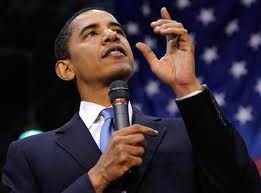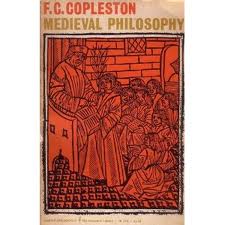 The Elizabethan doctor Robert Fludd (1574-1637) thought it wise to apply ointment to the weapon that inflicted a wound, rather than the wound itself. Now before we dismiss the poor doctor consider the concentrated efforts by some seeking to ban the implements of a crime, namely guns, rather than focusing on the perpetrator. Doctor Fludd thought that healing would be made by transferring sympathetic powers from the weapon to the wound. The modern approach is the same, but instead of appeasing the weapon we act punitive toward it. In both cases it seems that weapons are a type of agent that acts in some mysterious way that we need to influence, in place of focusing on the people.
The Elizabethan doctor Robert Fludd (1574-1637) thought it wise to apply ointment to the weapon that inflicted a wound, rather than the wound itself. Now before we dismiss the poor doctor consider the concentrated efforts by some seeking to ban the implements of a crime, namely guns, rather than focusing on the perpetrator. Doctor Fludd thought that healing would be made by transferring sympathetic powers from the weapon to the wound. The modern approach is the same, but instead of appeasing the weapon we act punitive toward it. In both cases it seems that weapons are a type of agent that acts in some mysterious way that we need to influence, in place of focusing on the people.
Posted in Politics, Pop Culture | 1 Comment »
Ezekiel 18v14: ‘But suppose this son has a son who sees all the sins his father commits, and though he sees them, he does not do such things.’
Posted in Uncategorized | Leave a Comment »
Pastor Wilson has written a sobering post, Three Coyotes and a Sheep, over at his blog: Blog and Mablog. In it he lays out not-so-unlikely ramifications in light of the recent let down by Chief Justice Roberts. I encourage everyone to shoot over his his blog and read it.
~BW
Posted in News, Politics | Leave a Comment »
 Recently, president Obama offered support for his tax policies, regarding the rich, saying that “But for me as a Christian, it also coincides with Jesus’ teaching that ‘for unto whom much is given, much shall be required.’ It mirrors the Islamic belief that those who’ve been blessed have an obligation to use those blessings to help others, or the Jewish doctrine of moderation and consideration for others.” Lets unpack this a bit.
Recently, president Obama offered support for his tax policies, regarding the rich, saying that “But for me as a Christian, it also coincides with Jesus’ teaching that ‘for unto whom much is given, much shall be required.’ It mirrors the Islamic belief that those who’ve been blessed have an obligation to use those blessings to help others, or the Jewish doctrine of moderation and consideration for others.” Lets unpack this a bit.
Christ quoted above (Please read Luke 12v48) is talking about those who are found faithful when the master (Jesus) returns. The context has much more than to do with than just money, it is about using one’s skill and assets to profit one’s master until his return. Put another way, it is about how we can expand Jesus’ kingdom until His return.
But, this is not to say we just earn money and give it up for growth. All one’s skills ought to be used. If you are a gifted speaker, then speak on behalf of the Church. If you are a great organizer, then help organize God’s people to expand the kingdom.
Following Obama’s inference the state ought to be able to force engineers or doctors out of their private jobs to work in the public sector, because their (assumingly) smarter than the rest of us and much more will be required of them. It appears Obama’s social posturing is having the state act as God’s accountant, and maybe later manage His labor force.
Even in the Islamic reference, the obligation is issued from Allah not the state. Allah issues a duty to use one’s blessing to help the poor. But a duty implies a choice. I ought to do something, although I don’t have to. Obama wants to take that choice away. The state is demanding more than Allah! You will do this or that whether your heart is in it or not!
Folks, I am all for helping the poor. In the bible, God says the only religion He likes is taking care of orphans and widows. We, as Christians, ought to take care of the poor as far as our consciences and sphere of influence allows us. But we should not force our neighbors to with social engineering. Let the true Master take an account of people’s lives.
~BW
*Here is a link to the story quoted above*
UPDATE: The link is no longer being serviced.
Posted in Apologetics, News, Politics, Pop Culture, Scripture | Leave a Comment »
 I have just completed Brookhiser’s fairly recent book on James Madison. It was a short book, about 250 pages, compared to the man and era he was reporting. This could stem from the author’s constant summations of Madison’s thoughts and arguments; in addition he refrained from meandering much into other pivotal charters of the time. His use of parenthetical statements were annoyingly odd. Overall, Brookhiser’s book serves well as an introduction for one seeking to learn more about ‘the father of our constitution.’
I have just completed Brookhiser’s fairly recent book on James Madison. It was a short book, about 250 pages, compared to the man and era he was reporting. This could stem from the author’s constant summations of Madison’s thoughts and arguments; in addition he refrained from meandering much into other pivotal charters of the time. His use of parenthetical statements were annoyingly odd. Overall, Brookhiser’s book serves well as an introduction for one seeking to learn more about ‘the father of our constitution.’
In regards to Madison himself, he was a staunch believer in religious freedom proclaiming, “Religious bondage, shackles and debilitates the mind” (21). In considering George Mason’s draft, harkening back to John Locke, “call[ing] for ‘the fullest toleration in the exercise of religion” (23), Madison thought the word toleration implied the state was superior to grant freedom to others. So, Madison penned an amendment positing, “‘All men are equally entitled to the full and free exercise’ of religion” (23). This implies that free worship is a right of human nature.
Madison was also staunchly against state subsidized religion. He reasoned Christianity, “disavows a dependence on the powers of the world” (42). Furthermore, tracing the same line of thought from above, Madison figured that the Church who accepted states help today would be controlled by the state tomorrow. It is interesting to note that in early American, Reverends and Preachers and Pastors were ‘more free’ to preach about–for and against–politics without being bullied by the government ( a la the IRS in regards to the tax exempt status– a way to bully the bullies in the bully pulpit). Madison may have been a prophet in foreseeing that when Churches accept terms by the government, the government will use whatever those means are as leverage against the Church. Consider the latest attempted incursion into the Church by the Obama administration regarding who the Church (Mosque or Synagogue) can hire or fire to teach their doctrinal beliefs. Praise God the courts slapped that over-reaching hand. This goes to show how Madison anticipated some of the inclinations of government.
There is a pointed quote from Governor Morris in reference to the French Revolution that echos from the past to pronounce on our current state of affairs. As Jefferson was leaving France and Morris arriving, in passing Morris offered, “France’s leaders ‘want an American constitution’ without ‘reflecting that they have not the American citizens to support it” (96). As this remark would have served Jefferson well to reflect on–instead of being untroubled, and supporting the trade of 1000’s dying to bring a French Revolution (112-113)–our current policy makers ought to consider Morris’ wisdom in handling the so called ‘Arab Spring’.
This book also helped me appreciate Mr. Obama’s vast constitutional knowledge. When he remarked about people ‘clinging to their guns and religion’ he was likely referencing the fact that the English Bill of Rights–which our Bill of Rights derived from– “upheld a rather specialized form of the right to bear arms: ‘Protestants may have arms for their defense” (80). Thus, when people do cling to their guns and religion they are fulfilling an aged old right! Surely this is what Obama meant, and not that they should cling to the hand of governmental ‘progress’–the same hand that tried to bind the Church, as noted above.
While I do have some quibbles with some of Brookhiser’s treatment of John Adams–couched as they may be through the prism of Madison. I am thankful for his book and have learned a great deal from him. I recommend it to all that want to have a closer look at one of our greatest founding fathers.
~BW
Posted in Book Reviews, Politics | 2 Comments »
 My lovely wife of 5 years has decided to begin reading Alvin Plantinga! She is starting with chapter 2 of The Analytic Theist, which is Plantinga’s famous freewill defense. Now I’ll have to be extra careful when trying to answer her questions! Yikes…
My lovely wife of 5 years has decided to begin reading Alvin Plantinga! She is starting with chapter 2 of The Analytic Theist, which is Plantinga’s famous freewill defense. Now I’ll have to be extra careful when trying to answer her questions! Yikes…
Posted in Apologetics, Fun, Logic, Philosophy | Leave a Comment »
Alvin Plantinga may be one of the greatest Christian philosophers of our time! I recommend everyone to pick up, “The Analytic Theist: An Alvin Plantinga Reader” by James F. Sennett. Inside, Sennett compiles various essays by Plantinga to give the reader a basic tour of his mind.
Posted in Book Reviews, Fun, Philosophy | Leave a Comment »
“In the desert
I saw a creature, naked, bestial,
Who, squatting upon the ground,
Held his heart in his hands,
And ate of it.
I said: “Is it good, friend?”
“It is bitter-bitter,” he answered;
“But I like it
Because it is bitter,
And because it is my heart.”
~Stephen Crane
Posted in Poetry | 1 Comment »
 Medieval Philosophy is a very accessible read. It has been my first exposure to an overview of philosophical Medieval thought; so I cannot comment on Copleston’s skill in treatment or interpretation of the various philosophers cataloged. I give him the benefit of the doubt like I do most authors of history.
Medieval Philosophy is a very accessible read. It has been my first exposure to an overview of philosophical Medieval thought; so I cannot comment on Copleston’s skill in treatment or interpretation of the various philosophers cataloged. I give him the benefit of the doubt like I do most authors of history.
I learned a great deal. For example, the distinction between early theology and philosophy. I have heard the phrase, ‘I believe so that I may understand’ before, but I had not been aware of the context it was uttered in before reading this book. If I understand Copleston correctly this statement frames a theological philosophy to work within. Theology informs, by way of revelation, some metaphysical principles, and philosophy works within that framework to define and explain doctrine.
Briefly, it was interesting to see Augustine’s political views on the state contrasted with Aquinas’. I will not go into detail here, but seeing how these two men differed on the role of the ‘natural state’ is worth thinking about how much our thought and attitudes toward the state is effected by our times.
Also, Copleston’s discussions on Ockham’s metaphysics and ethics were really helpful. I am now eager to read Jerry Well’s Good God: Theistic Foundations of Morality, where he argues that the Ockhamists succumb to one of the horns in the Euthyphro Dilemma.
Finally, Copleston introducing me to William of Champeaux has provided me quite a bit of food for thought in personally thinking about and attempting to formulate the Trinity.
I think anyone interested in theology, philosophy, or church history should read this book.
~BW
Posted in Apologetics, Book Reviews, Philosophy | Leave a Comment »